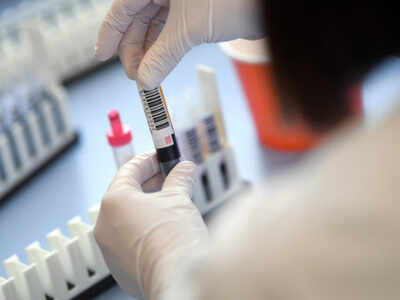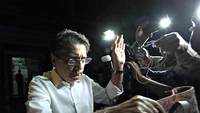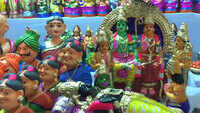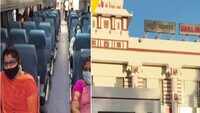
CHENNAI: City hospitals are reporting a high demand for antibody tests from people eager to find out if they have been infected with Covid-19 or have high chances of contracting it. Doctors say they keep getting repeated requests for these blood-based tests, but they do not encourage them as they do not guarantee protection from future infection.
“An antibody test should not be done unless it is ordered by a when the symptoms warrant,” said Dr Ram Gopal Krishnan, Consultant Apollo Hospitals. It’s a diagnostic tool and not a public health measure and studies have shown the antibodies level drop below detectable after 3-4 months, he said. “This means even if you have the antibodies now, it doesn’t mean you will be protected 3-4 months later. There are documented cases of re-infection. From a practical standpoint, you might have antibodies today, but you will be vulnerable again,” he said.
Dr Nataraj Palaniappan, paediatric intensivist at Rainbow Children’s Hospital said he had been receiving requests from parents keen on getting their children tested for antibodies. “Unless children are undergoing surgical treatment, or have multisystem inflammatory syndrome, we do not recommend it. For acute infection we ask them to take RT PCR,” he said.
Doctors say many such requests come from working professionals whose employers demand that the results be made available before they resume work.
While the state stipulates that antibody tests cannot be done without a prescription, experts say several private labs continue to promote them, assuring people that they can become immune to the virus if they have the antibodies and charging between ₹800 and ₹1,500 per test.
A WHO report says having antibodies to Covid-19 does not mean the person has an ‘immunity passport’ or ‘risk-free certificate’. “The use of such certificates may therefore increase the risks of continued transmission.”
“We do these tests mainly for nurses, healthcare professionals, and frontline workers only when there are symptoms. We usually recommend RT PCR tests,” said Dr Vijayalakshmi B, senior consultant (infectious diseases) Kauvery Hospital.
The Centre had recently advised all states to make RT-PCR and Rapid Antigen Tests available on demand.
Doctors instead asked people to follow preventive guidelines such as social distancing, wearing a mask, and washing hands. “Till such time a vaccine becomes available, there is no shortcut other than taking this preventive measures,” said Dr Ram.
“An antibody test should not be done unless it is ordered by a when the symptoms warrant,” said Dr Ram Gopal Krishnan, Consultant Apollo Hospitals. It’s a diagnostic tool and not a public health measure and studies have shown the antibodies level drop below detectable after 3-4 months, he said. “This means even if you have the antibodies now, it doesn’t mean you will be protected 3-4 months later. There are documented cases of re-infection. From a practical standpoint, you might have antibodies today, but you will be vulnerable again,” he said.
Dr Nataraj Palaniappan, paediatric intensivist at Rainbow Children’s Hospital said he had been receiving requests from parents keen on getting their children tested for antibodies. “Unless children are undergoing surgical treatment, or have multisystem inflammatory syndrome, we do not recommend it. For acute infection we ask them to take RT PCR,” he said.
Doctors say many such requests come from working professionals whose employers demand that the results be made available before they resume work.
While the state stipulates that antibody tests cannot be done without a prescription, experts say several private labs continue to promote them, assuring people that they can become immune to the virus if they have the antibodies and charging between ₹800 and ₹1,500 per test.
A WHO report says having antibodies to Covid-19 does not mean the person has an ‘immunity passport’ or ‘risk-free certificate’. “The use of such certificates may therefore increase the risks of continued transmission.”
“We do these tests mainly for nurses, healthcare professionals, and frontline workers only when there are symptoms. We usually recommend RT PCR tests,” said Dr Vijayalakshmi B, senior consultant (infectious diseases) Kauvery Hospital.
The Centre had recently advised all states to make RT-PCR and Rapid Antigen Tests available on demand.
Doctors instead asked people to follow preventive guidelines such as social distancing, wearing a mask, and washing hands. “Till such time a vaccine becomes available, there is no shortcut other than taking this preventive measures,” said Dr Ram.

Coronavirus outbreak
Trending Topics
LATEST VIDEOS
City
 Shocking: Retired Army doctor stabs husband to death in Hyderabad
Shocking: Retired Army doctor stabs husband to death in Hyderabad  'Y' category security to Kangana Ranaut: 'Will Dawood also be given security?' asks Shiv Sena leader Pratap Sarnaik
'Y' category security to Kangana Ranaut: 'Will Dawood also be given security?' asks Shiv Sena leader Pratap Sarnaik  Sushant was not a drug addict; was given heavy dosage of medicines by Rhea, alleges a friend
Sushant was not a drug addict; was given heavy dosage of medicines by Rhea, alleges a friend  ICICI-Videocon case: Chanda Kochhar's husband arrested by ED over money laundering allegations
ICICI-Videocon case: Chanda Kochhar's husband arrested by ED over money laundering allegations
More from TOI
Navbharat Times
Featured Today in Travel
Get the app





